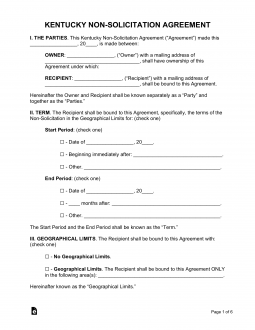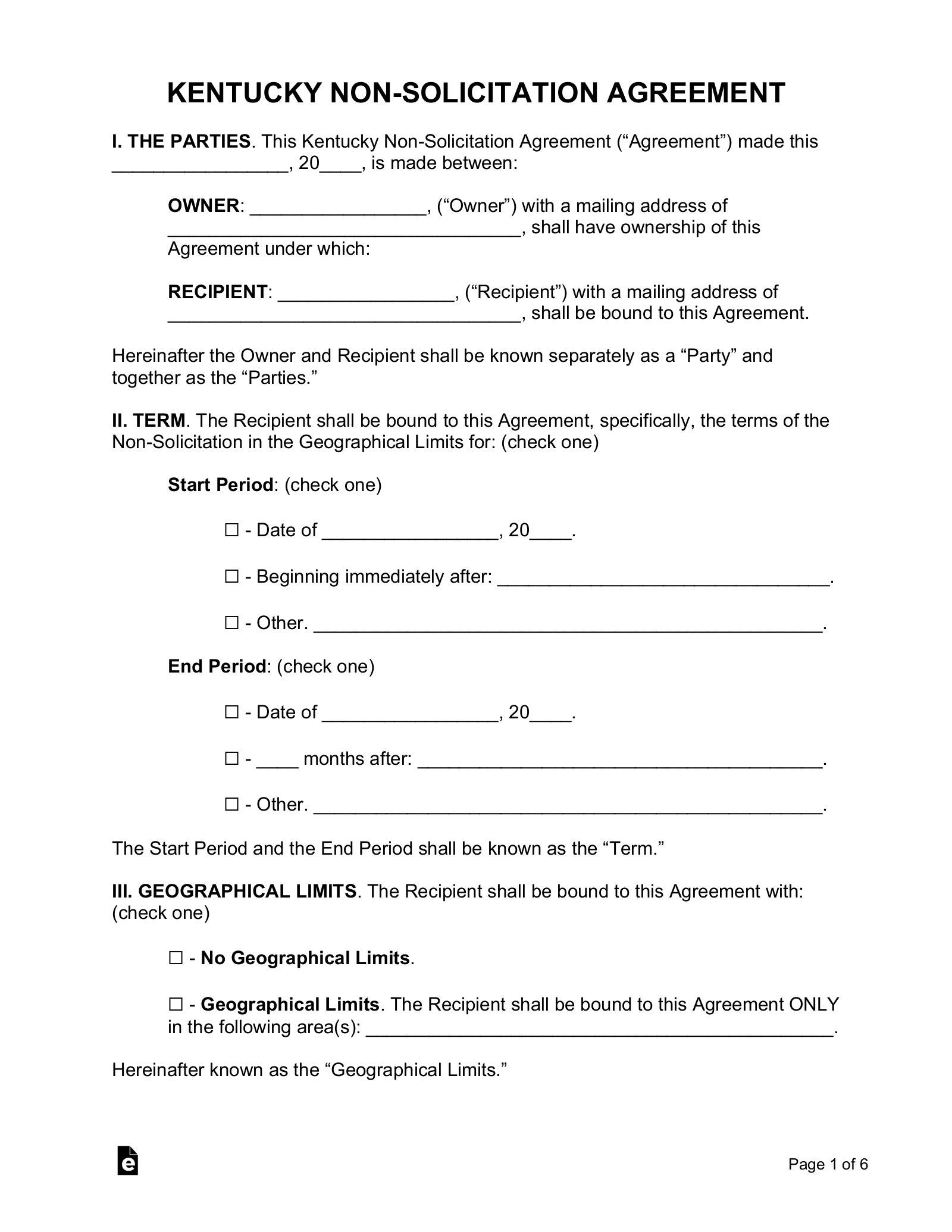Updated October 16, 2023
A Kentucky non-solicitation agreement sets restrictions on what an employee can do after leaving the company. Specifically, non-solicitation agreements prevent the employee from contacting the company’s clients, employees, and contractors for their own benefit or on behalf of another company. While non-solicitation agreements are often included as part of an employment contract, Kentucky permits agreements that are signed after onboarding.
Is It Legally Enforceable in Kentucky?
Yes. Non-solicitation agreements are enforceable if they are only as restrictive as necessary to protect the interests of the employer, but not so restrictive that they interfere with the public interest or impose undue hardships on the employee.
(Central Adjustment Bureau, Inc. v. Ingram Associates, Inc., 622 S.W.2d 681, 685 (Ky. Ct. App. 1981))
Table of Contents |
What Types of Solicitation Can Be Prohibited?
A non-solicitation agreement can be customized to restrict an ex-employee from contacting the employer’s:
- Former or current customers/clients
- Former or current employees
- Independent contractors
- Other business relationships
What Should Be Included in the Agreement?
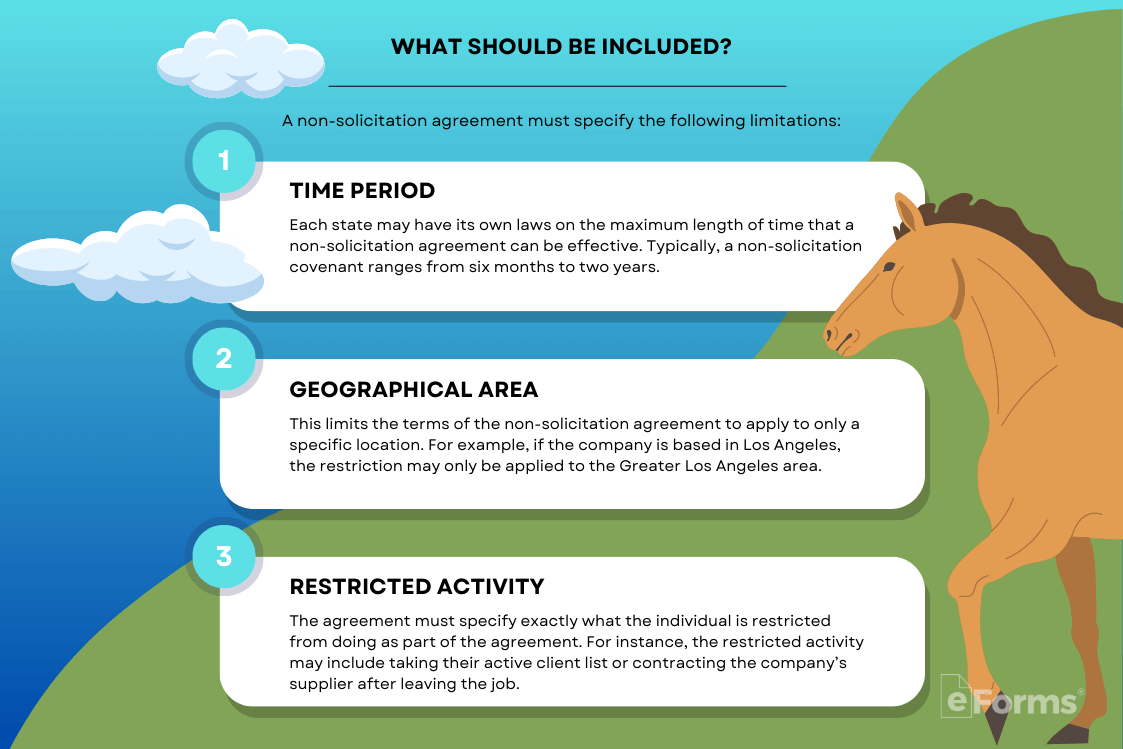
In order to hold up in a Kentucky court of law, a non-solicitation covenant must include reasonable restrictions with regard to:
1. Time Duration
While Kentucky case law does not state a maximum length of time that a restrictive covenant can be enforced, it must be considered reasonable and fair in balancing the interests of the employer, employee, and the public.
2. Geographical Reach
The agreement must specify the exact area or location where the ex-employee is restricted from engaging in the prohibited activities. Similar to the time limit of the covenant, it must be considered necessary to protect the employer’s business while respecting the rights of the employee.
3. Prohibited Activities
This section should detail exactly what the ex-employee is restricted from doing as part of the agreement. This can range from contacting specific parties associated with the employer to enacting a blanket ban on contacting any and all clients and employees of the employer.
Related Forms
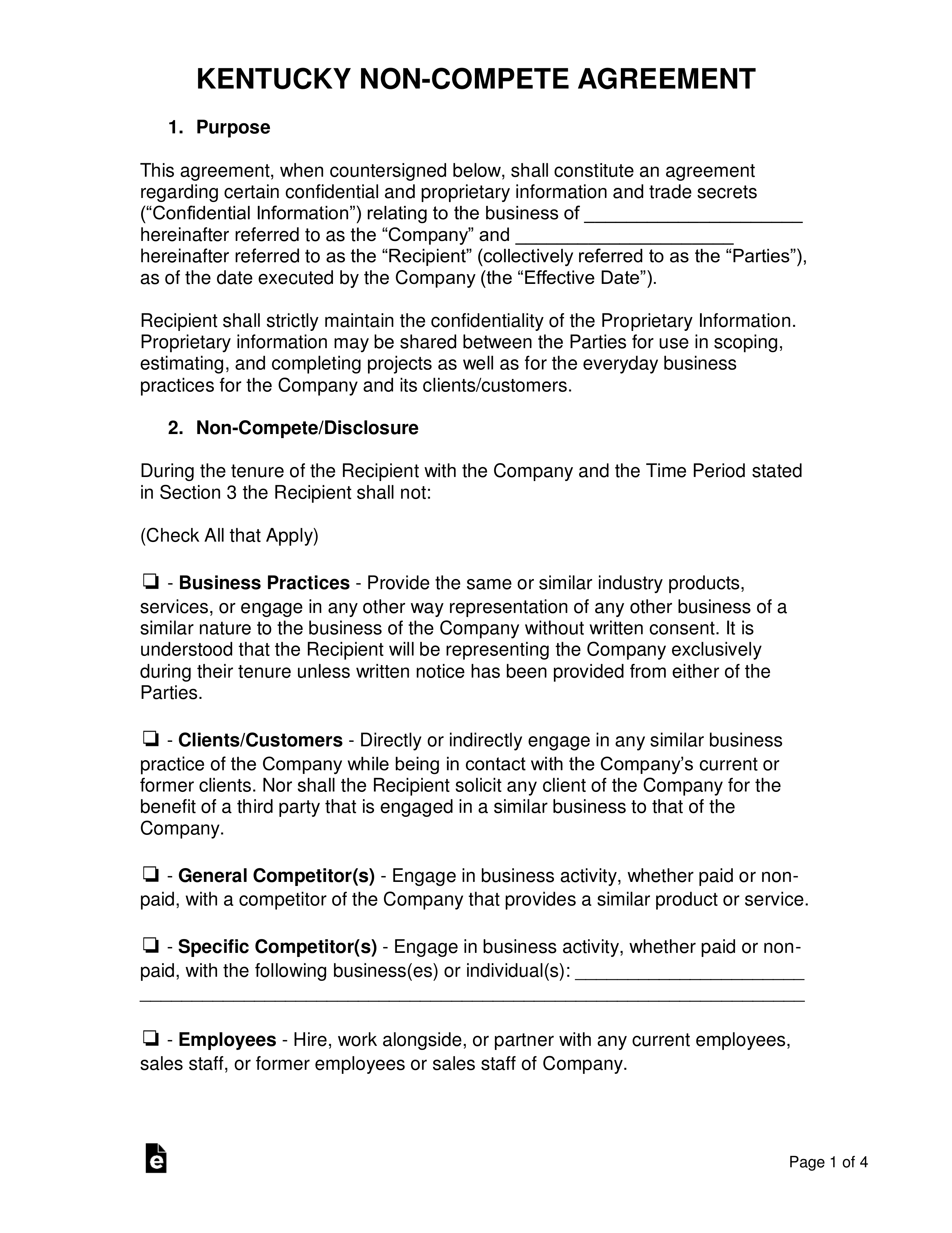 Kentucky Non-Compete Agreement
Kentucky Non-Compete Agreement
Download: PDF, MS Word, OpenDocument
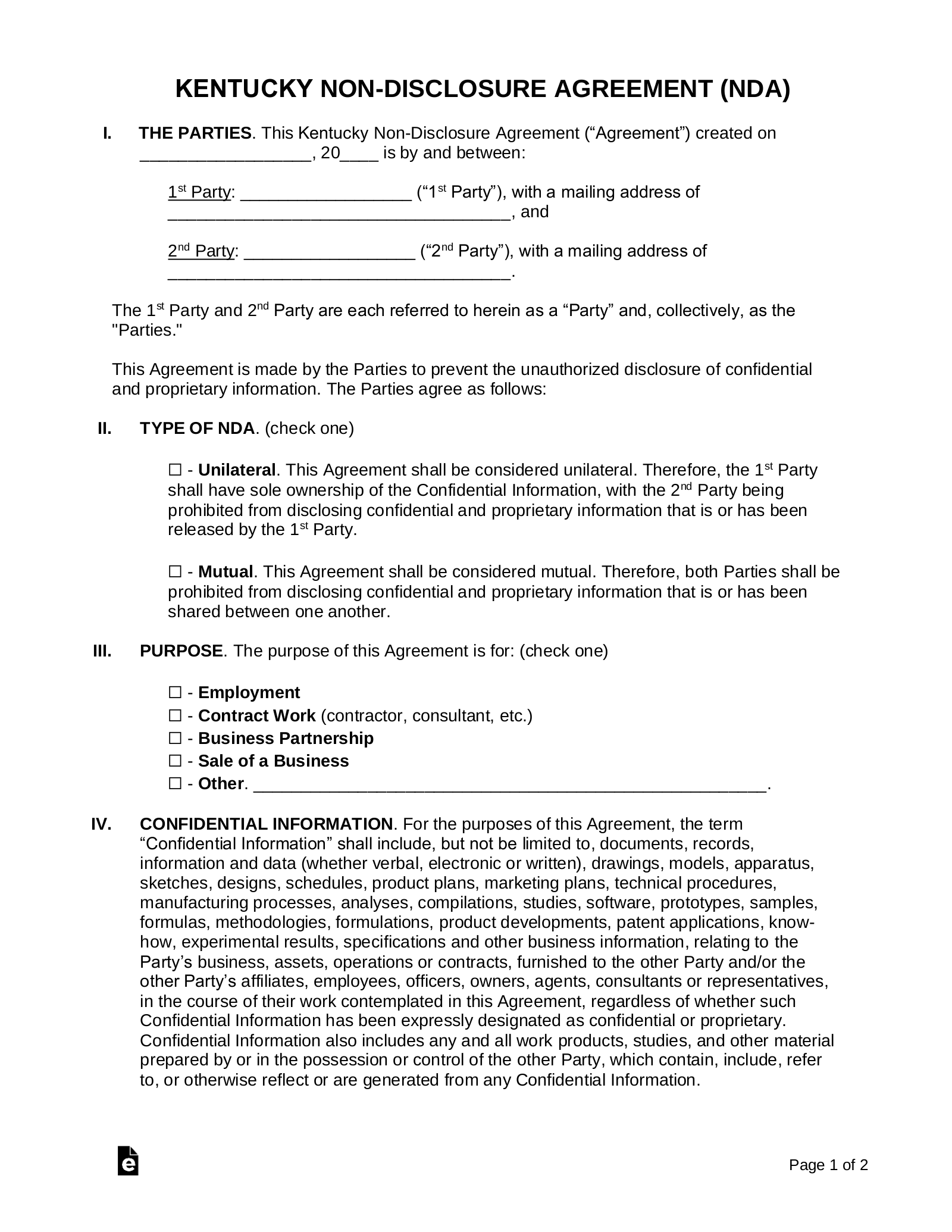 Kentucky Non-Disclosure Agreement
Kentucky Non-Disclosure Agreement
Download: PDF, MS Word, OpenDocument

